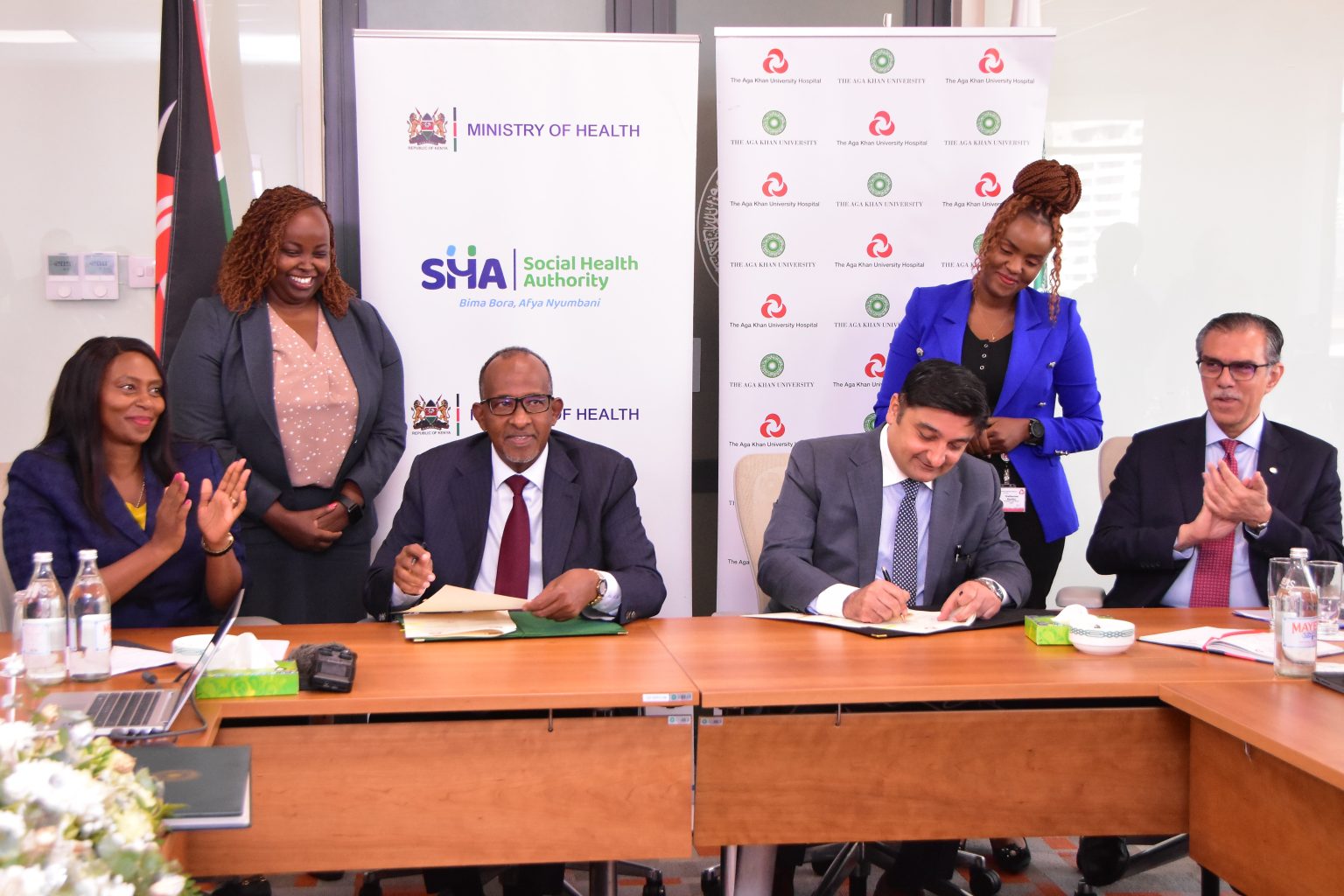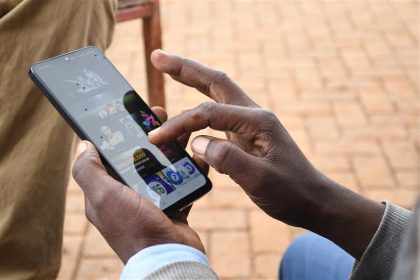Subsidised kidney transplant surgeries will be provided to patients who meet clinical eligibility criteria and demonstrate financial need- Health CS, Aden Duale
Thousands of Kenyans battling advanced kidney and heart diseases will receive transplants and surgeries from the Aga Khan University Hospital (AKUH) at no extra cost after a landmark partnership between the Ministry of Health through the Social Health Authority (SHA).
The agreement, signed by Health CS Aden Duale and AKUH’s CEO, Rashid Khalani, will make life-saving kidney transplants and critical cardiac surgeries more accessible to patients who would otherwise be unable to afford such care.
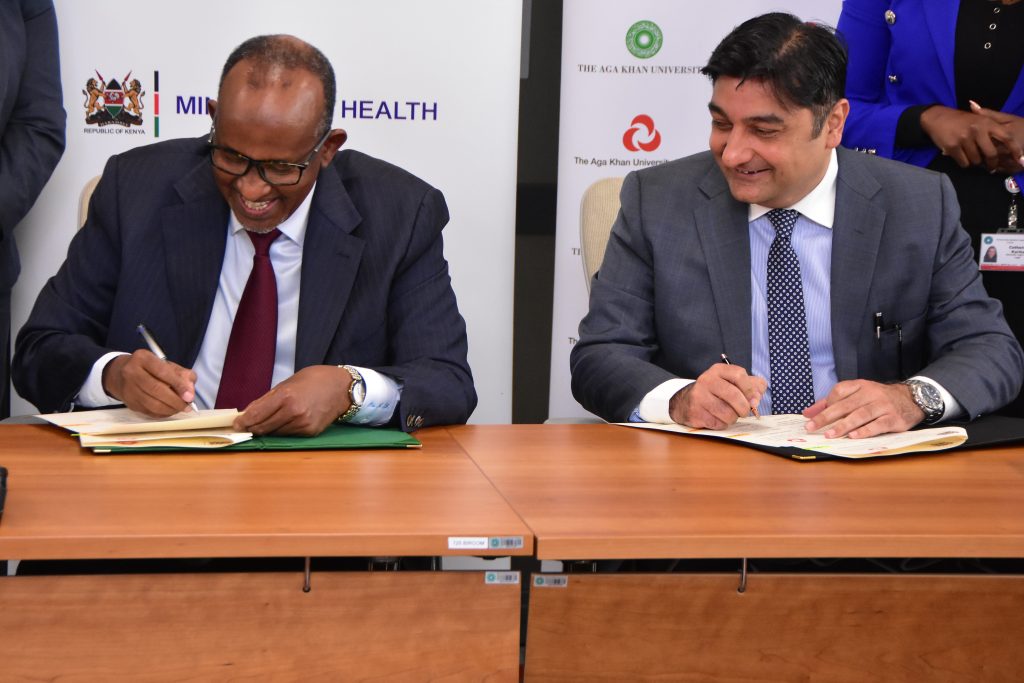
“Subsidised kidney transplant surgeries will be provided to patients who meet clinical eligibility criteria and demonstrate financial need,” said Duale. “For those qualifying as determined by the SHA means testing instrument, the hospital will cover costs exceeding the Ksh700,000 covered by SHA.” This will include post-operative care.
According to the SHA tariff for renal care, donor surgery (donor nephrectomy) is covered at KSh168,000, while recipient surgery is covered at KSh700,000. Together, these form the complete surgical package. In addition, post-renal replacement therapy is covered up to an annual limit of KSh200,000 per household.
For years, patients requiring high-cost procedures like kidney transplants, coronary artery bypass grafts (CABG), and valve replacements faced overwhelming financial barriers. Even with public health insurance support, many found the SHA Tariff coverage, like the Ksh700,000 ceiling for kidney transplants, insufficient.
Under the partnership, AKUH will cover costs that go beyond the SHA cap, ensuring eligible patients, especially the most vulnerable, receive full treatment without sinking into poverty.
Patients will be assessed based on medical necessity and financial means using SHA’s standardised eligibility tool. “This initiative represents a significant step forward in reducing catastrophic health expenditures, particularly for Kenya’s most vulnerable populations,” said Duale.
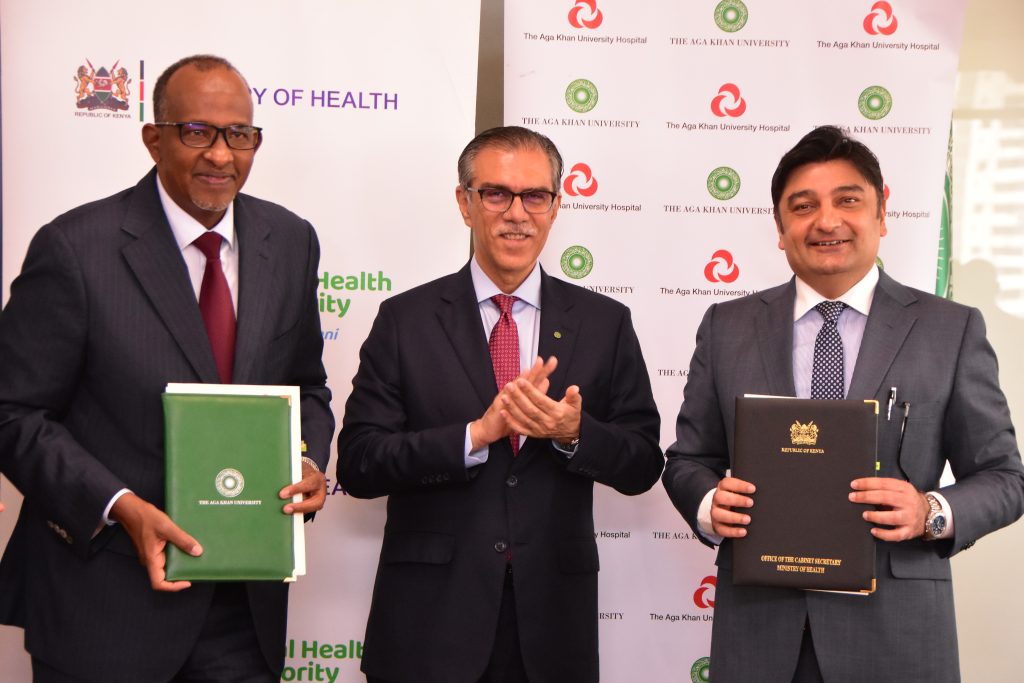
The partnership leverages AKUH’s world-class facilities, cutting-edge technology, and highly trained specialists and “we are honoured to work with SHA to bring these vital services to the most vulnerable,” said Khalani. “Our goal is to ensure that every approved patient receives the highest standard of care with dignity and without the burden of financial stress.”
The initiative comes at a critical time. Non-communicable diseases (NCDs), including kidney failure and heart disease, have emerged as leading causes of death and disability in Kenya, disproportionately affecting low-income families.
According to Ministry data, NCDs reduce household income by nearly 29 per cent, pushing many further into poverty.
And with over 11,000 Kenyans travelling abroad each year for treatment, spending a staggering Ksh14.7 billion in 2024 alone and thus an urgent need for a health financing strategy for NCDs “that actively subsidises treatment costs and shields families from financial hardship,” added Duale.
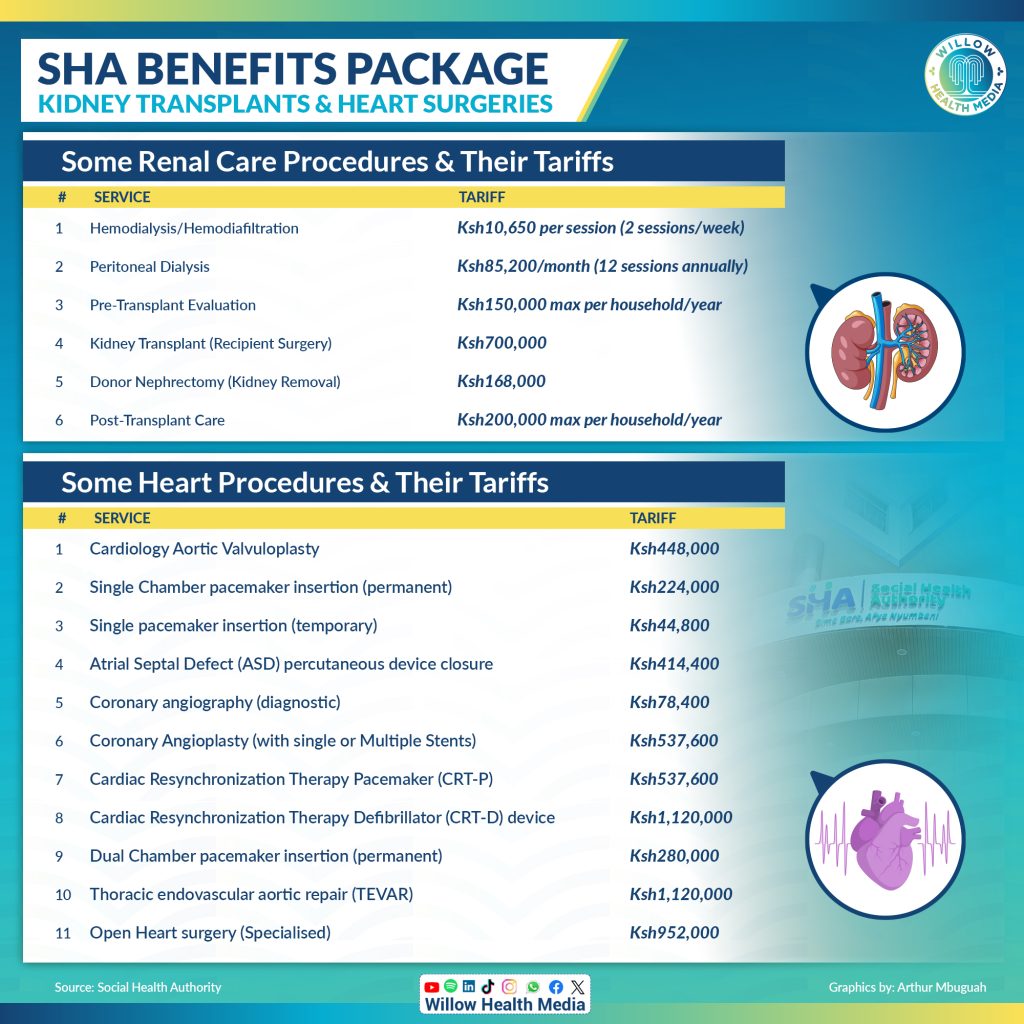
SHA established the Emergency, Chronic, and Critical Illness Fund for financial protection for patients with life-threatening conditions, and the partnership could thus mean fewer out-of-pocket costs, less financial stress, and more peace of mind. For the health system, it sets a precedent for public-private partnerships that work.

The Ministry of Health has invited other hospitals, public, private, and faith-based, to adopt similar models and implement the SHA Tariff and Benefits Package. It is a call for shared responsibility to create a health system that is inclusive, fair, and sustainable.
As the programme rolls out, AKUH is expected to gather data and evaluate outcomes to help scale the model and expand its reach to more Kenyans in need.
And for the mother waiting anxiously beside her child’s dialysis machine, or the father praying for a second chance after a heart attack, that change couldn’t come soon enough.



